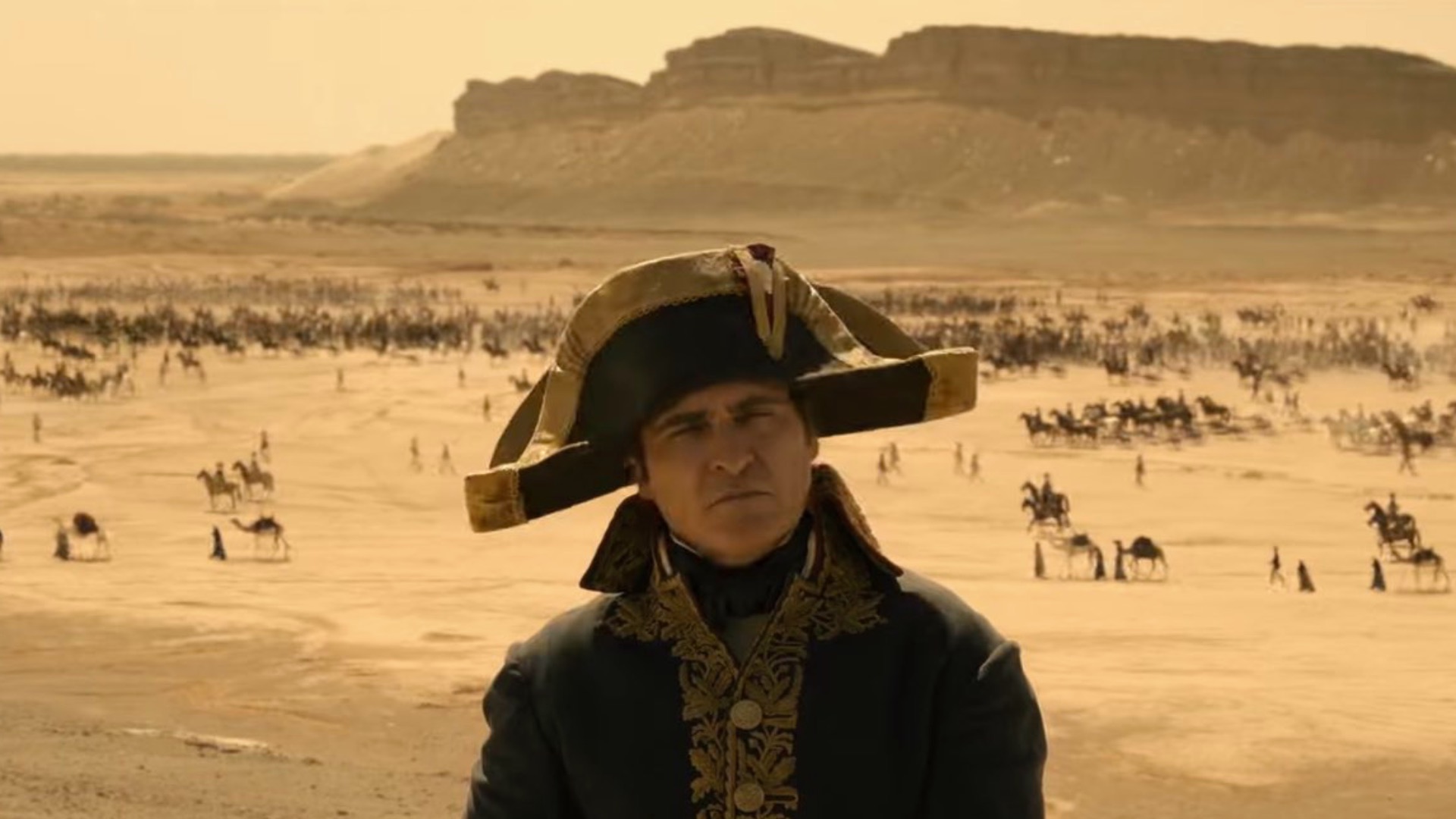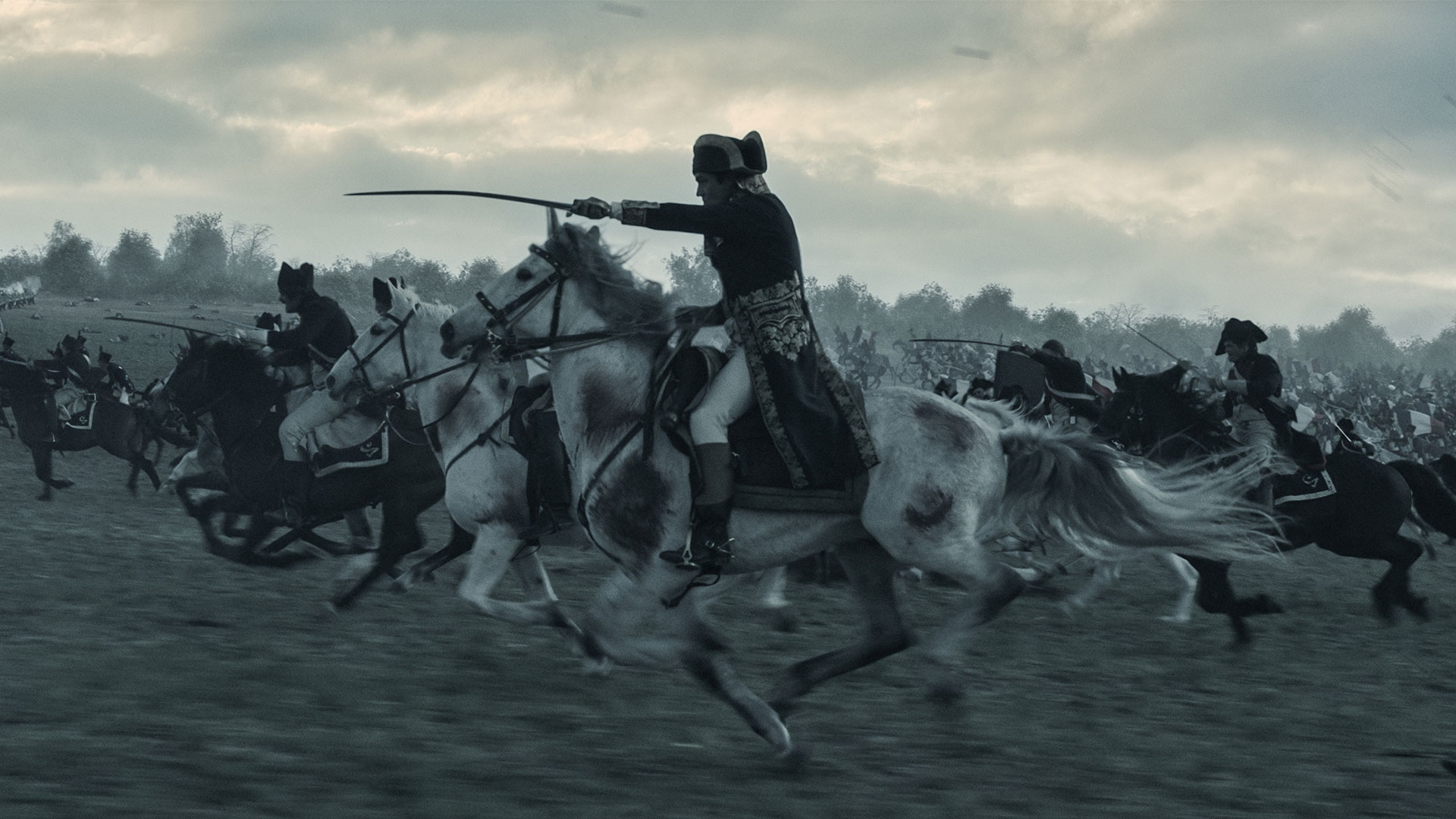
Before spiraling costs forced him to retreat, Stanley Kubrick famously claimed his planned Napoleon biopic would be "the best movie ever made". Ridley Scott, a visualist with similarly unwavering self-belief, hasn’t reached those unimaginable heights with his own account of the French autocrat’s life, but this masterfully marshaled, entertainingly playful historical epic is one of the 85-year-old director’s finest features in almost two decades.
Opening with the macabre execution of Marie Antoinette in 1793, David Scarpa’s smartly focused screenplay covers Napoleon’s life from his career-making role in ending the Siege of Toulon, to his death in exile on Saint Helena almost 30 years later.
The half-a-dozen-or-so battles depicted provide Napoleon with its blockbuster thrills (Apple financed the film for a reported $130m), but the film is as much a character piece about Bonaparte and his voracious wife Josephine, their unconventional relationship a public balancing act between power and love.
Abandoning the faux-continental accent requirements that made Scott’s House of Gucci almost impossible to take seriously, Phoenix plays the general-turned-Emperor in his vanilla American accent, and at the precise nexus between Gladiator’s Commodus and Beau is Afraid’s titular loser – the source of much of the film’s humor ("Destiny has brought me this lamb chop!" he bellows in a moment of impotent rage).
On the battlefield he’s commanding and ruthless. At home it’s a different matter entirely. Napoleon is variously flustered, buffoonish and hopelessly in thrall to Josephine (Vanessa Kirby), whom he can’t help but forgive, even after being publicly cuckolded and forced to make a humiliating early return from the Egyptian campaign.

Kirby – a late addition to the film after The Last Duel star Jodie Comer was forced to drop out – proves a perfect fit for Josephine. The age gap is all wrong (Josephine was famously older than Napoleon), but the dynamic works thanks to Kirby’s innate confidence and implied dominance. Rupert Everett also makes a memorable impression as Arthur Wellesley, the sporting, tea-sipping British general who faces Napoleon at Waterloo and can scarcely hide his disdain for the once-exiled French Emperor.
Despite clocking in at a little over two-and-a-half hours (Scott told TF a four-hour director’s cut is in the works for Apple TV+) there’s an awful lot to fit in, and the approach here is necessarily elliptical. The highlight is undoubtedly the mid-film Battle of Austerlitz, where the French army obliterates the combined forces of Russia and Austria on an icy battlefield thanks to Napoleon’s strategic nous, a sequence of extraordinary tension, terror and tactility.
Visual effects unquestionably play an integral role in bringing alive the battle sequences, with their ferocious cannon fire, thousands of charging cavalrymen and exploding horses. But how satisfying that a film of this scale at least feels grounded in some semblance of reality.
This isn’t a comprehensive account of Napoleon’s life, and nor does it try to be – save that for Spielberg’s planned seven-part HBO series based on Kubrick’s scripts – and there’s a questionable relationship with historical veracity (to critics, Scott has already bluntly said: "Get a life").
But, still, the film can feel like it’s in a race to squeeze everything in, while the essential politicking that unfolds on the fringes and in back rooms is never as gripping as when Napoleon and Josephine’s deeply unhealthy relationship plays out, let alone when the cannonballs start flying. These may be issues that the longer cut solves, but even in its already lengthy theatrical form, Napoleon has achieved another resounding victory.
Napoleon is released in US and UK cinemas on November 22. For more upcoming movies, check out our guide to the remaining 2023 movie release dates.







